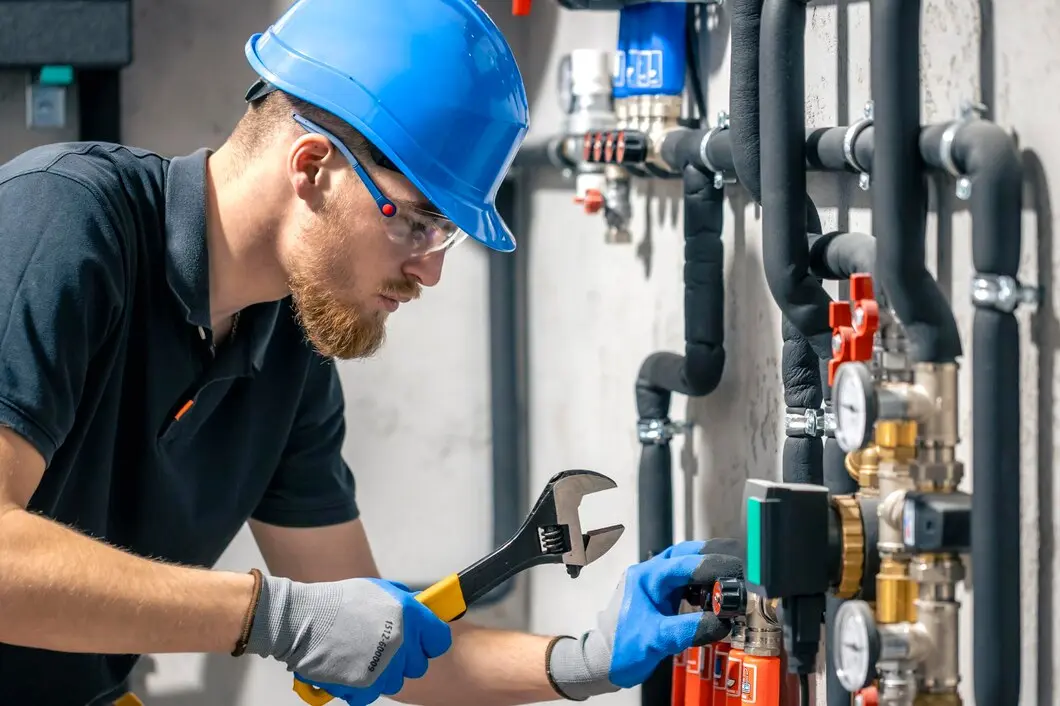1. Understanding Commercial Plumbing Services
Commercial plumbing services encompass a wide range of solutions tailored to meet the demands of commercial establishments. These services are distinct from residential plumbing due to the scale, complexity, and specific requirements of commercial plumbing systems. They include everything from routine maintenance and emergency repairs to installation and system upgrades.
2. Key Services Offered
a. Installation and Upgrades
- Plumbing Fixtures: Installation of sinks, faucets, toilets, and other fixtures suitable for high-traffic environments.
- Pipe Systems: Upgrading or installing new piping systems to meet the demands of commercial use.
- Grease Traps: Installing grease traps in restaurants and food service establishments to manage waste and prevent clogs.
b. Maintenance Services
- Routine Inspections: Regular inspections to ensure the plumbing system operates efficiently and to catch potential issues early.
- Drain Cleaning: Professional cleaning of drains and sewer lines to prevent blockages and maintain smooth operation.
- Water Heater Maintenance: Servicing commercial water heaters to ensure reliable hot water supply.
c. Emergency Repairs
- Leak Repairs: Addressing leaks in pipes, fixtures, or fittings to prevent water damage and ensure system integrity.
- Clog Removal: Immediate response to clogged drains or sewer lines that could disrupt business operations.
- System Failures: Quick repairs for plumbing system failures that impact business functionality.
3. Benefits of Professional Commercial Plumbing Services
a. Expertise and Experience
Commercial plumbers are trained to handle complex systems and large-scale operations. Their expertise ensures that your plumbing issues are addressed efficiently and effectively.
b. Compliance with Regulations
Commercial plumbing services ensure that all installations and repairs comply with local codes and regulations, avoiding legal issues and ensuring safety.
c. Minimizing Downtime
Professional plumbers work quickly to resolve issues, minimizing downtime and disruption to your business operations.
d. Preventive Maintenance
Regular maintenance helps prevent costly emergency repairs by addressing minor issues before they become major problems.
4. Choosing the Right Commercial Plumbing Service Provider
a. Assess Their Experience
Look for plumbing companies with extensive experience in commercial plumbing. Their familiarity with complex systems and regulations is crucial for effective service.
b. Check References and Reviews
Request references from previous clients and check online reviews to gauge the reliability and quality of the service provider.
c. Verify Licensing and Insurance
Ensure the plumbing company is licensed and insured. This protects you from liability in case of accidents or damages during service.
d. Evaluate Their Range of Services
Choose a provider that offers a comprehensive range of services, from installation to emergency repairs, to address all your plumbing needs.
e. Consider Their Response Time
Inquire about their response time for emergency services. Quick response is essential for minimizing downtime and mitigating damage.
5. Common Commercial Plumbing Issues
a. Pipe Leaks
Leaking pipes can cause significant water damage and increase utility costs. Regular inspections help detect and repair leaks promptly.
b. Clogged Drains
High usage in commercial settings often leads to clogged drains. Regular cleaning and maintenance can prevent blockages and ensure smooth drainage.
c. Water Pressure Problems
Low or fluctuating water pressure can affect the operation of plumbing fixtures and appliances. Professional plumbers can diagnose and fix these issues.
d. Backflow Issues
Backflow occurs when water reverses direction, potentially contaminating the water supply. Backflow prevention devices are crucial for maintaining water quality.
6. Importance of Preventive Maintenance
Preventive maintenance is key to avoiding costly repairs and ensuring the longevity of your plumbing system. Regular inspections and upkeep can help:
- Identify Issues Early: Detect problems before they escalate into major issues.
- Extend System Lifespan: Proper maintenance helps extend the life of your plumbing infrastructure.
- Improve Efficiency: Well-maintained systems operate more efficiently, reducing energy and water costs.
7. How to Prepare for Plumbing Services
a. Document Your Plumbing System
Keep detailed records of your plumbing system, including blueprints, past repairs, and maintenance history. This information helps plumbers diagnose and address issues more effectively.
b. Communicate Your Needs
Clearly communicate your plumbing needs and any specific concerns to the service provider. This ensures that they can tailor their services to meet your requirements.
c. Schedule Regular Inspections
Set up a schedule for regular inspections and maintenance to keep your plumbing system in top condition and prevent unexpected problems.
Conclusion
Commercial plumbing services play a vital role in maintaining the functionality and efficiency of business operations. By understanding the range of services available, choosing a reputable provider, and prioritizing preventive maintenance, you can ensure that your plumbing system remains reliable and effective. Investing in professional plumbing services not only protects your business from costly disruptions but also helps maintain a safe and efficient environment for your employees and customers.
By following these guidelines, you can make informed decisions about your commercial plumbing needs and keep your business running smoothly.

